ReLondon opened its seventh annual Circular Economy Week at climate tech hub Sustainable Workspaces on Monday 30th September, bringing together government, business and civil society at an all-day event including an expo of circular innovators and policy roundtables.
The event, Zero waste economy – an engine of good growth, gathered circular economy leaders, pioneers and changemakers across UK, city and local government, business, NGOs, academia, and multiple industries to discuss policy positions and priorities for the new UK government around accelerating the transition to a zero waste economy.
As well as keynotes and a fascinating panel discussion, the day featured spotlight sessions on repair and reuse, and supply chain transparency; and showcased diverse London-based circular business innovators at ReLondon’s inaugural circular business expo.
There was some fantastic energy and enthusiasm in the room – a noticeable shift in momentum from previous years for the circular economy agenda. Key takeaways from the morning’s discussions included:
Wayne Hubbard, CEO, ReLondon
- The circular economy is the future economy: It’s the only way that we can be both economically, environmentally and socially resilient, and thrive at the same time.
- Starting with just 14 industry-focused events in 2017, Circular Economy Week has grown year-on-year and now consistently features between 60 and 70 events through the week – many of which are community-based repair, reuse and upcycling workshops; evidence that the circular economy is entering the mainstream.
- Cities are the engine room of the circular economy: they’re the nexus of citizens, government and business, and cities can – and do – move faster than national government in accelerating change at the pace and scale needed.
Emma Bourne, Director – Resources and Waste, Defra
- One of Defra’s top five priorities in the next five years is to lead work across government and in partnership with industry, academia, NGOs, and local places to transition the UK to a zero waste – or circular – economy.
- Transitioning to a circular economy will help to combat greenhouse gas emissions and secure the resources needed to deliver the net zero transition.
- The new government is convening a taskforce of experts to lead the transition, and they will work collectively to co-design the new circular economy strategy for England.
- The new circular economy strategy will support economic growth, deliver green jobs, promote efficient and productive use of resources, minimise negative environmental impacts and accelerate towards net zero.
- The strategy will be underpinned by a series of sectoral reform roadmaps, and local action will sit at the heart of the strategy.
- The incoming packaging reforms, including Extended Producer Responsibility, Simpler Recycling and the Deposit Return Scheme for drinks will together support 21,000 new jobs and stimulate over £10 billion of investment into recycling capability over the next 10 years.
Mete Coban – Deputy Mayor of London for Environment and Energy
- The UK has a new government that understands a more sustainable approach to the economy is a catalyst, not a challenge, to growth.
- Realising a circular economy in London by 2030 could create an additional 284,000 new jobs, and has the potential to contribute over £24 billion to London’s economy.
- In the time since the London Environment Strategy was published the Green New Deal fund has invested £10 million in programmes supporting around 1,000 green jobs.
Andrew Wordsworth, CEO, Sustainable Ventures
- Sustainable Ventures was founded in 2011 with a vision of developing commercial solutions to the challenges of climate change and resource scarcity – and circular businesses have always been at the heart of SV’s mission, with over a dozen early-stage circular businesses supported since 2011.
- Second-generation circular economy business models are on the rise. In addition to established circular business models like reuse, turning waste into a valuable resource, and sharing models, the most investment opportunities currently are in the deep tech innovation space, such as concrete for change: capturing CO2 from cement production and embedding it back into concrete to achieve carbon neutrality, for example.
- London is front and centre for this type of circular tech innovation.
Panel discussion: Circular cities – Engines of good growth
- The circular economy is a sustainable economic model – it’s much more than just waste and recycling.
- Multiple macroeconomic studies prove that the circular economy is compatible with economic growth. Much of this growth is down to improved industrial resource efficiency throughout supply chains.
- Any kind of economic growth – circular or otherwise – will be impossible unless our supply chains protect nature and material resources.
- We must create social justice when transitioning to a circular economy: taking a place-making approach to embedding the circular economy at a local level and involving community voices from the ground up is key to this.
- Future generations will struggle to understand why we chose a linear ‘take, make, dispose’ approach to our economy as circularity becomes not just vital but inevitable.
As part of the morning’s proceedings, ReLondon hosted its inaugural circular business expo, featuring 10 London-based circular businesses, showcasing their innovative solutions to support the transition to the zero waste economy and helping bring to life the ideas discussed in the room. They were:
- Again – Supply chain infrastructure powering circular packaging
- Batch.Works – 3D design and manufacture studio
- The Felix Project – ‘Good Food for Good Causes’
- KiDSiE – Circular platform for baby and kids’ goods
- Maconda Solutions – Material passports that turn buildings into resource hubs
- nibs etc. Ltd – Upcycled snacks from high fibre industry by-products
- Splendid Stitches – Enabling clothing brands and retailers to offer repairs to their customers
- Team Repair – Programme teaching children how to fix electronic gadgets
- Tern Eco – Circular retail software to help retailers earn more, reduce waste and increase customer loyalty
- Yodomo Ltd. – Helping businesses reduce and track textile waste through redistribution via circular hubs
It was a fantastic day, full of valuable conversations and connections made, providing real momentum for the urgent transition to a low carbon circular economy for London, the UK and beyond.

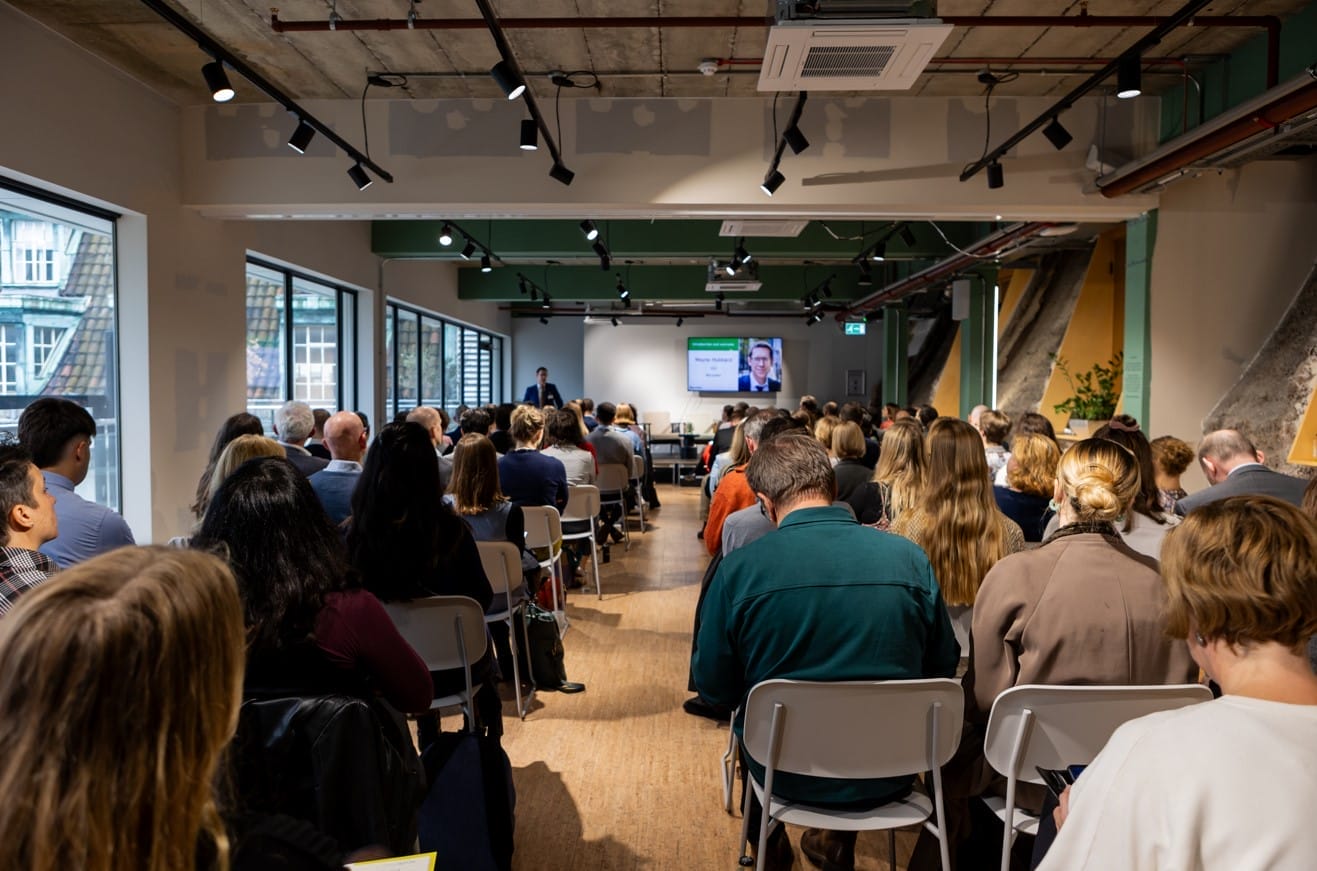
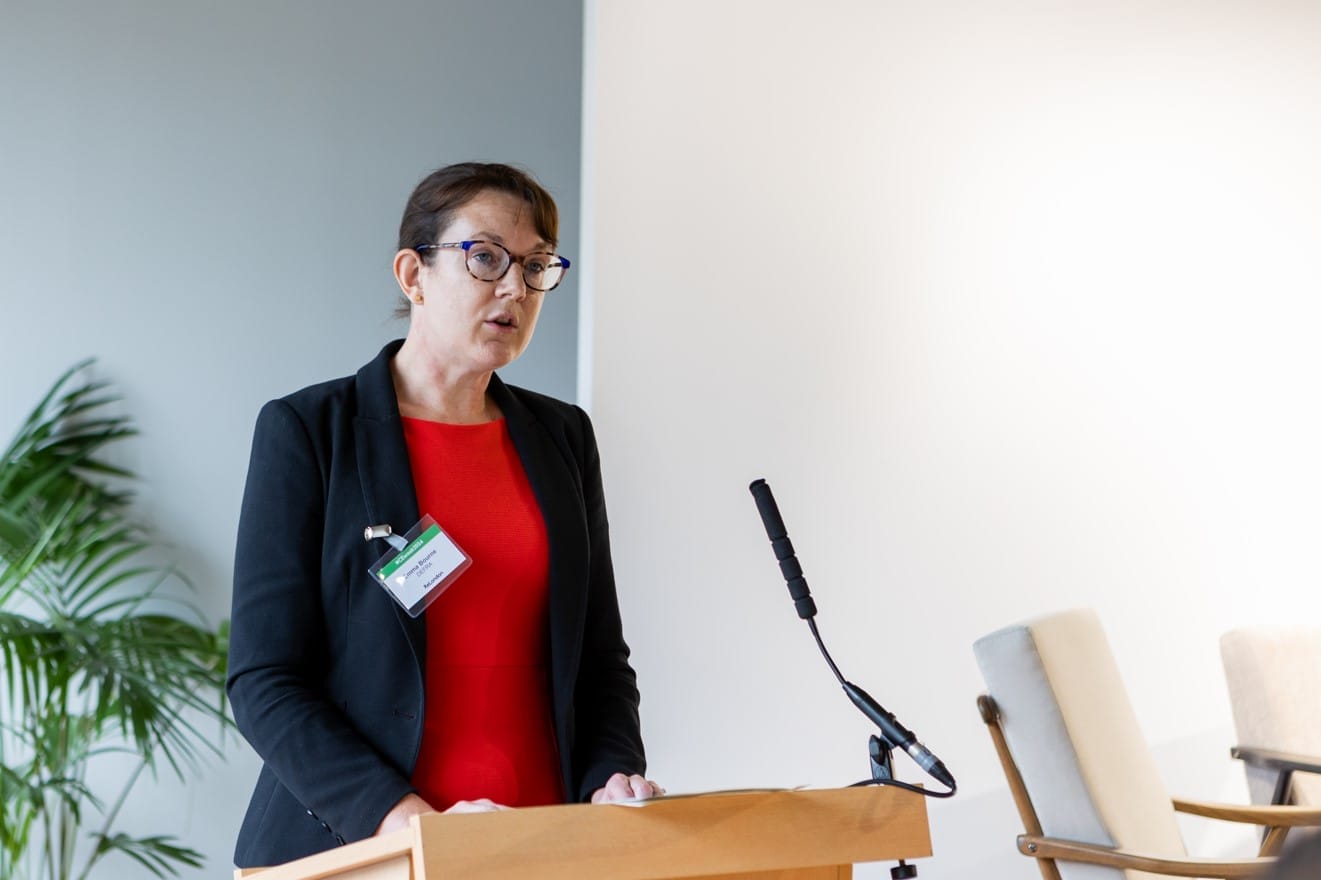
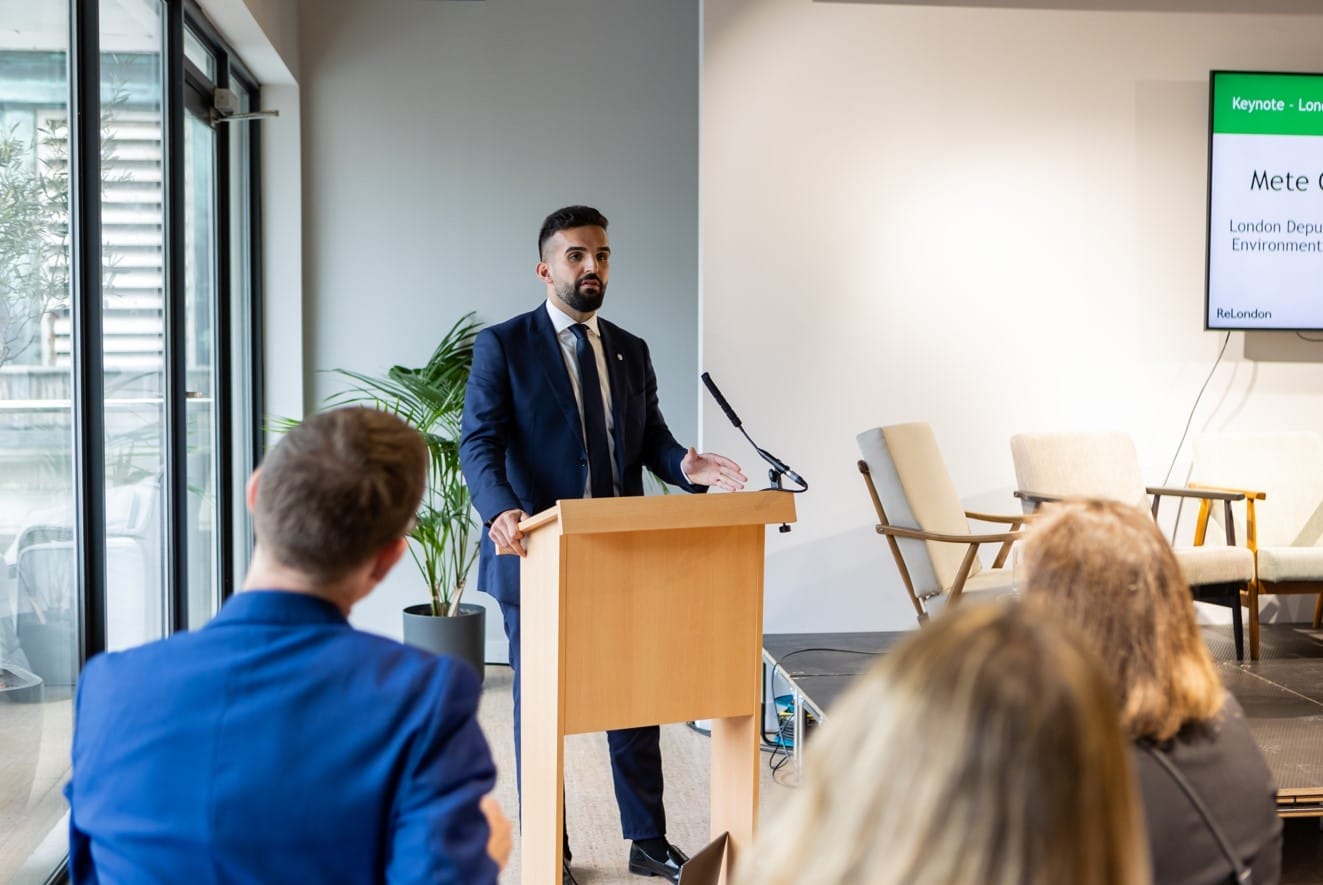
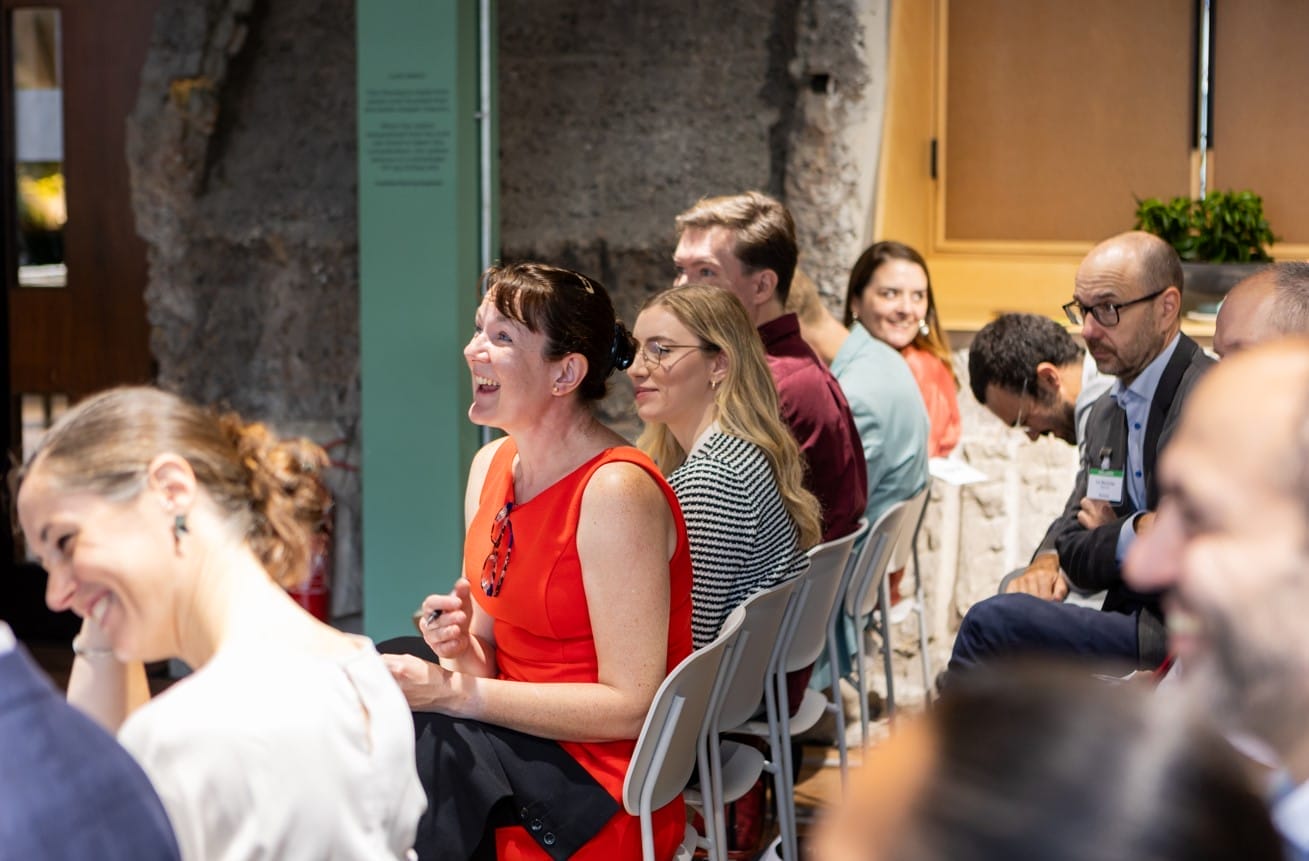
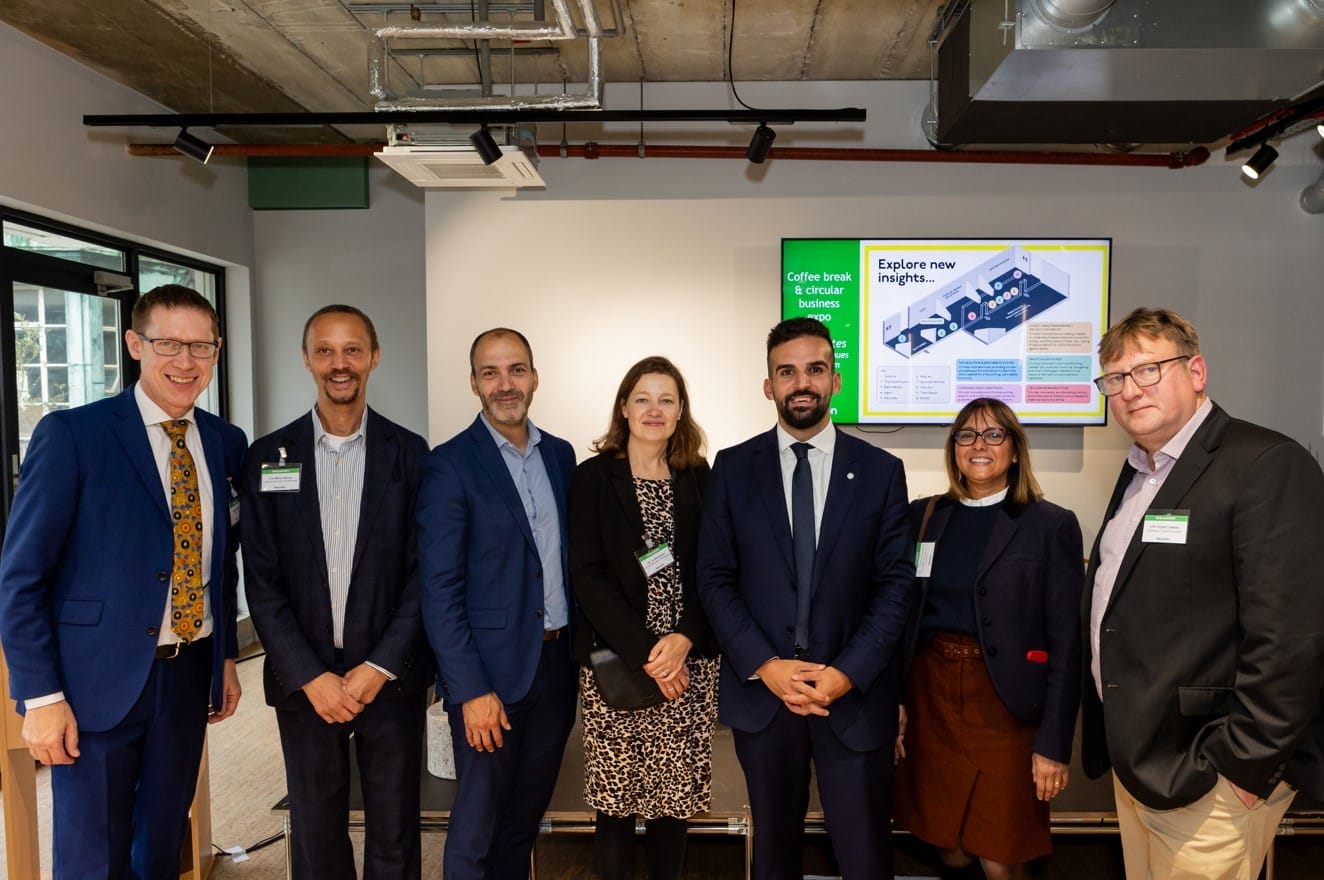
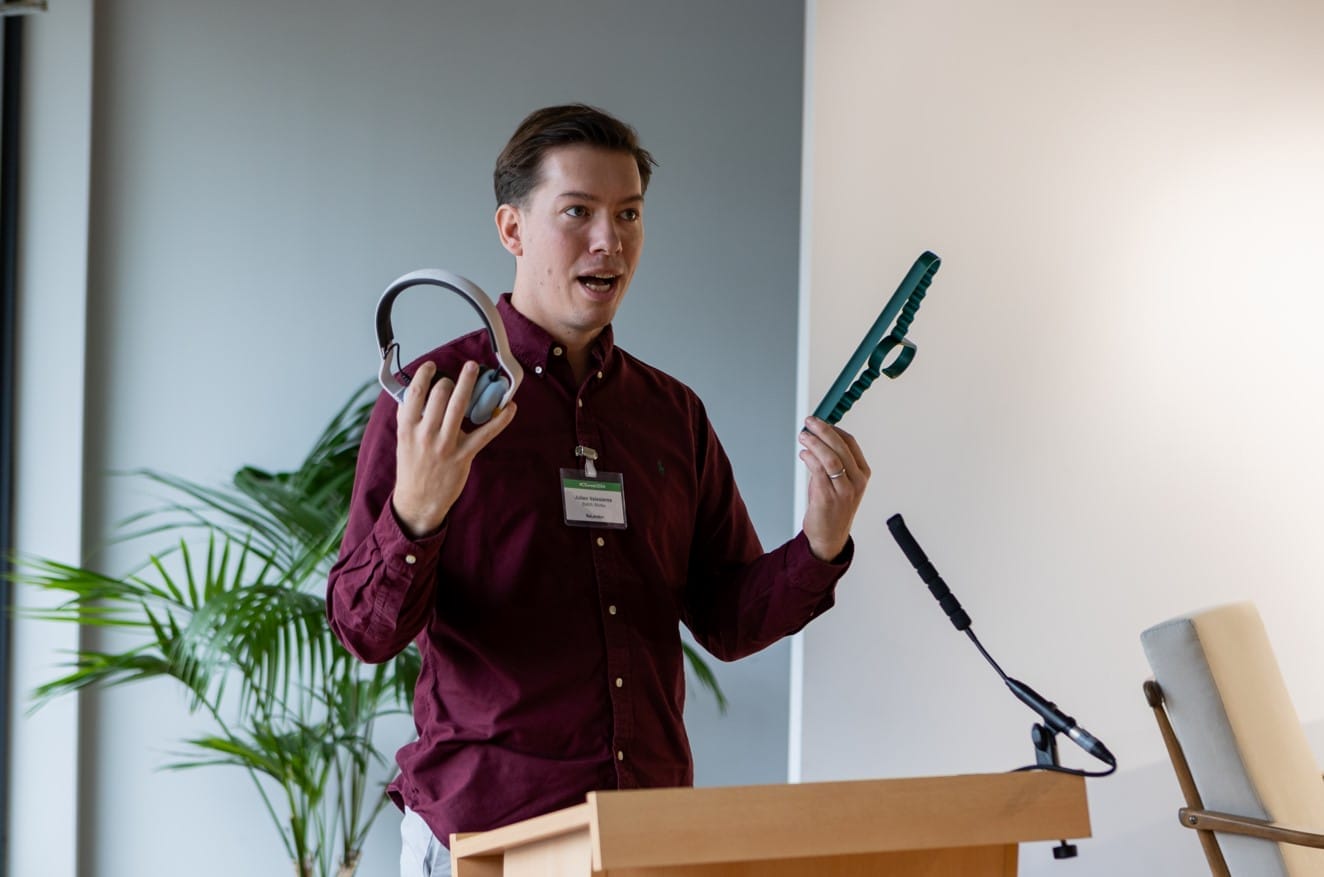
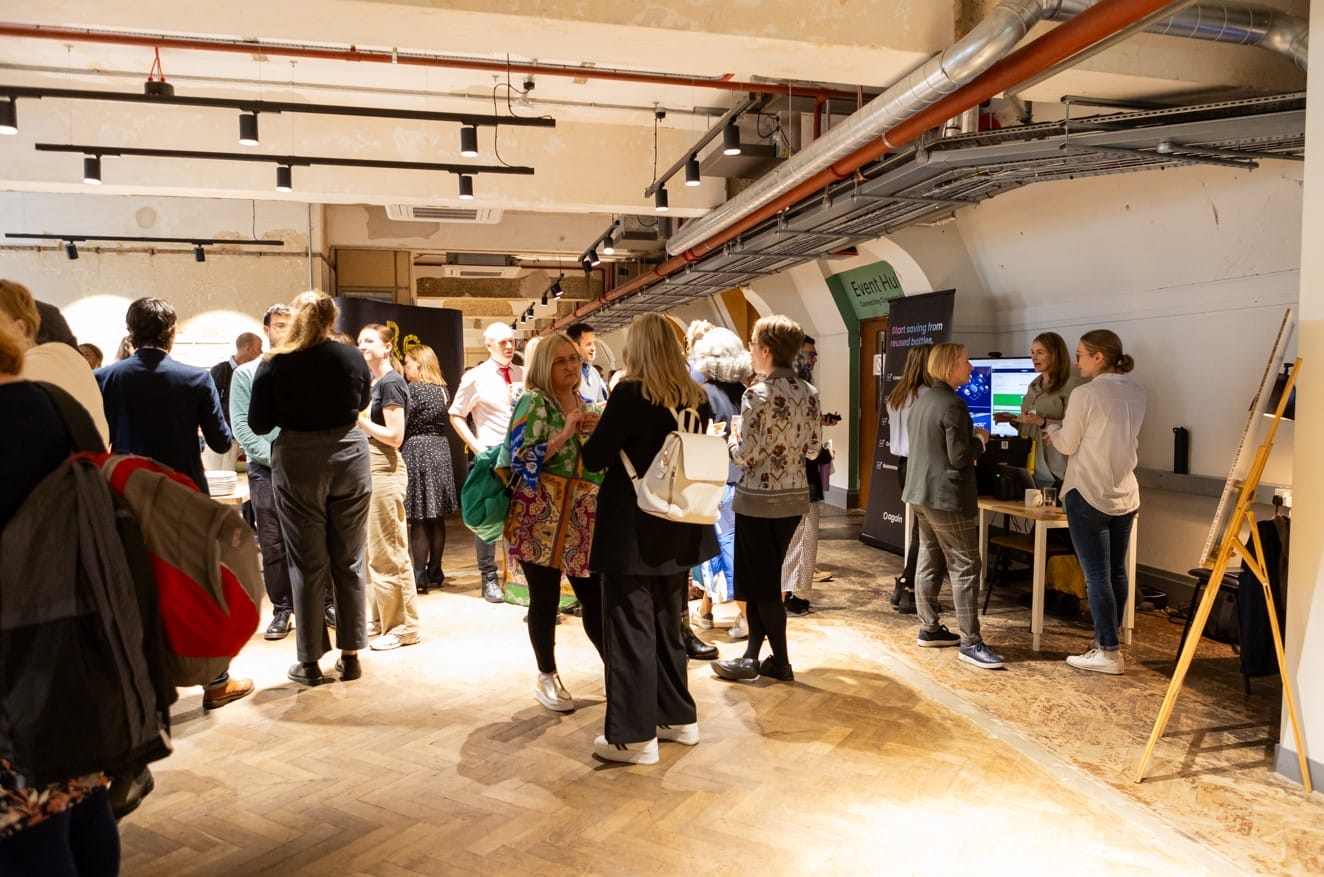
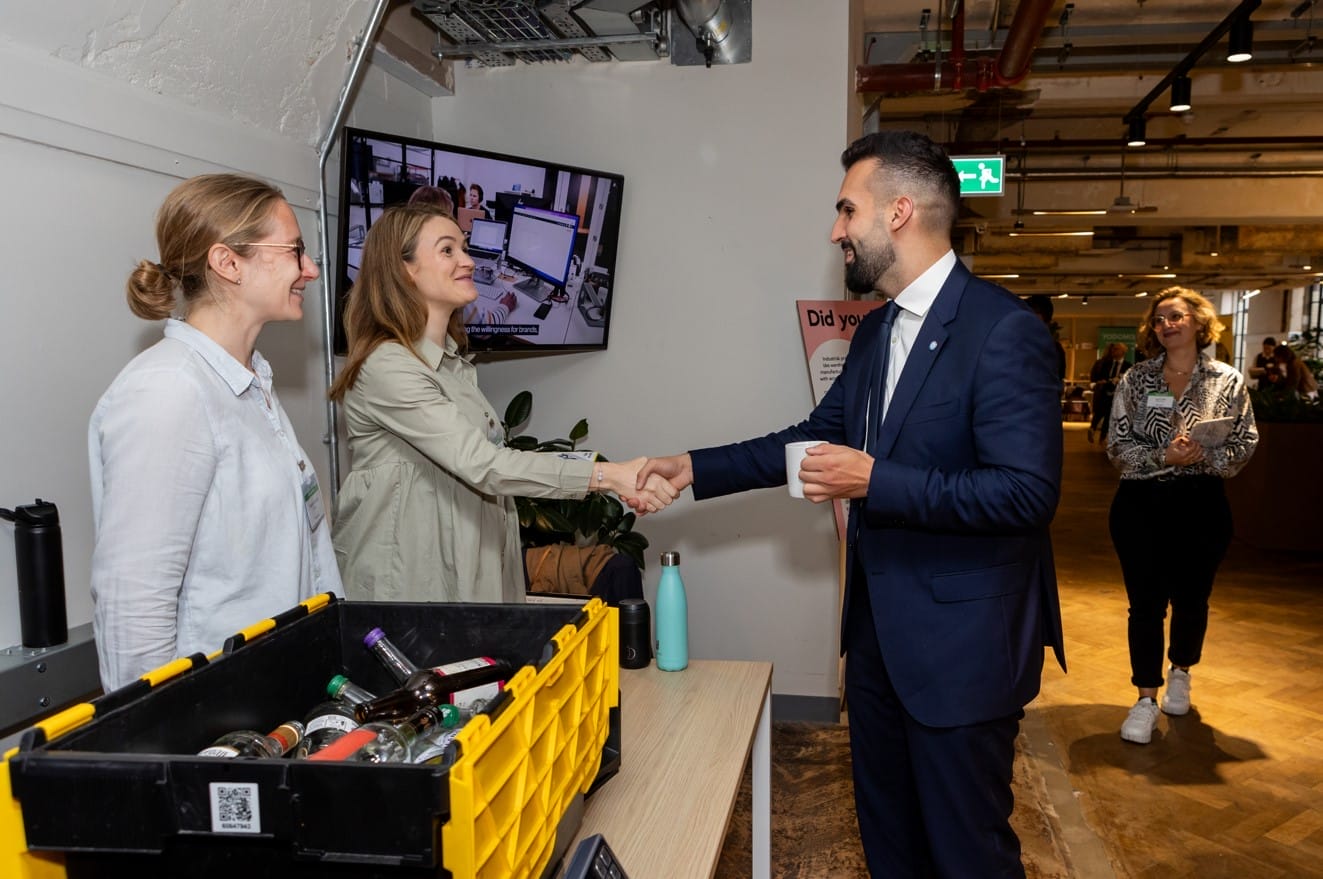
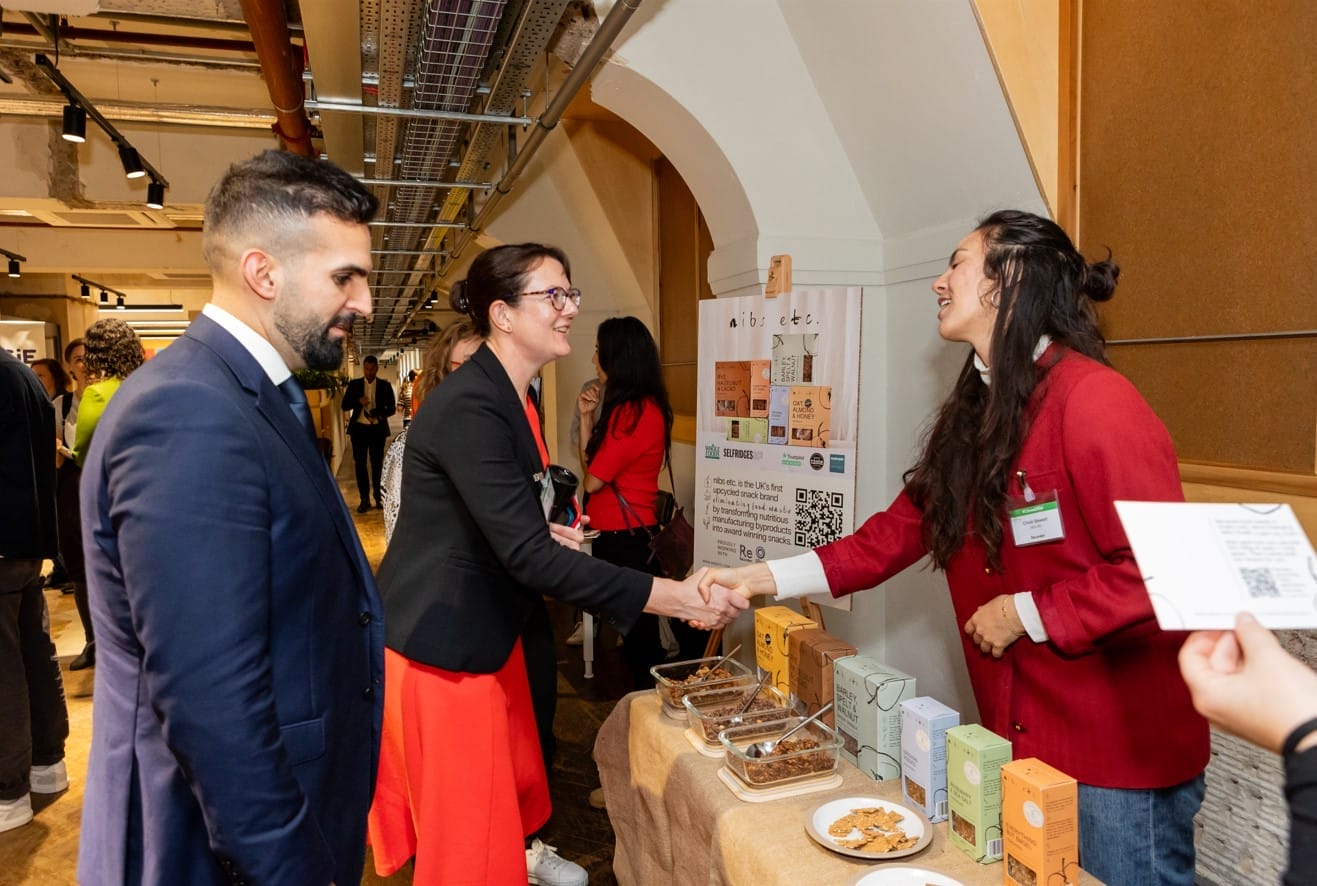
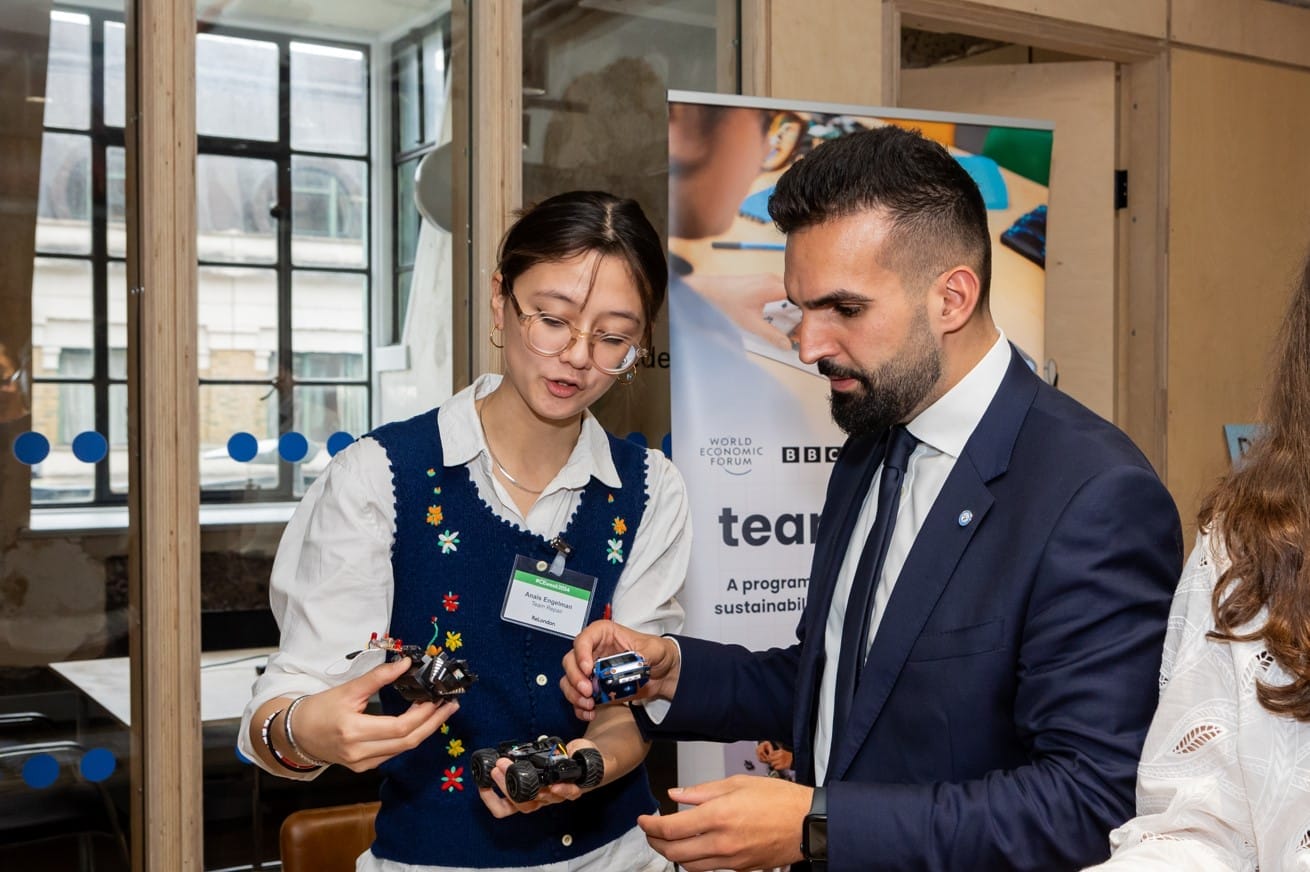
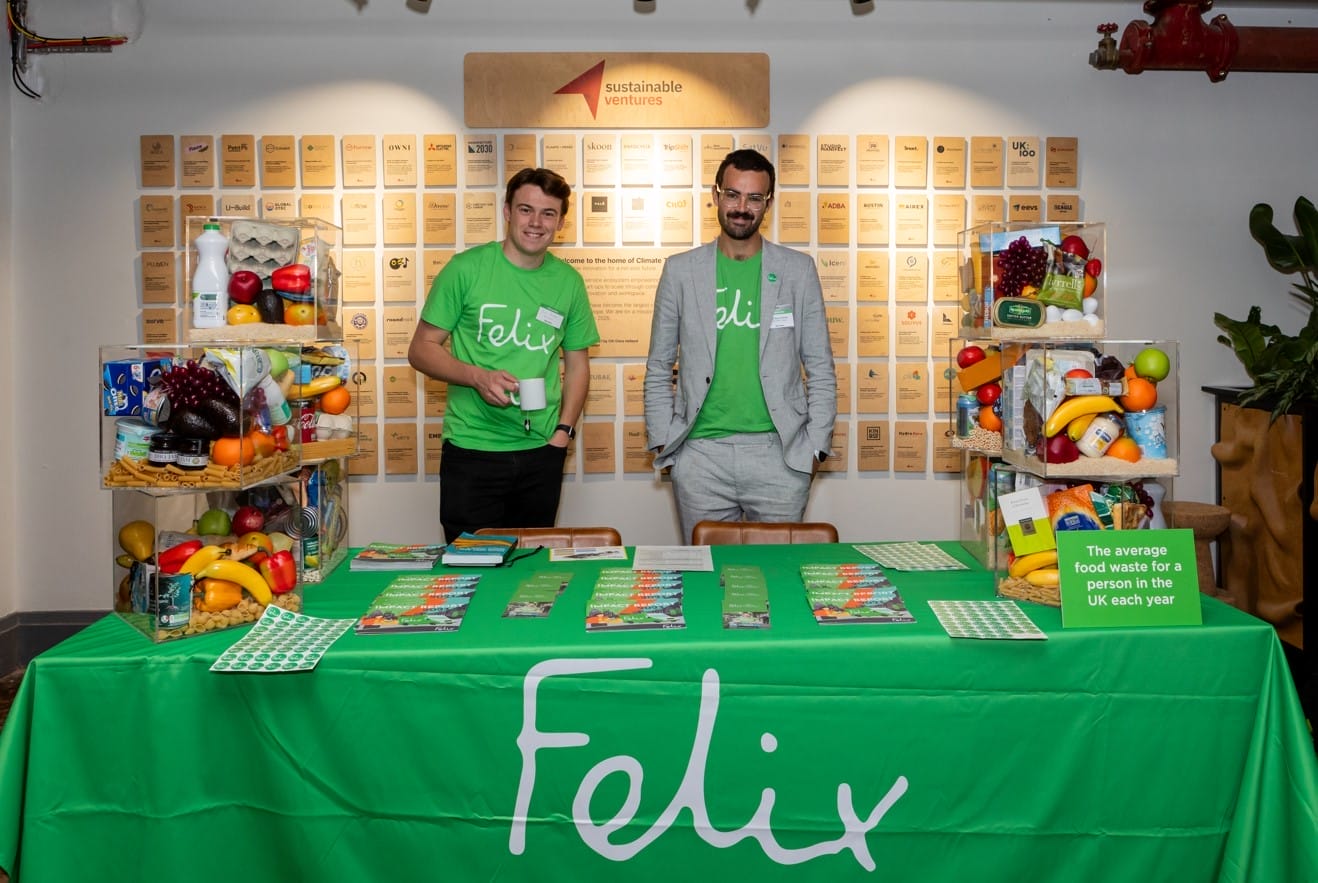

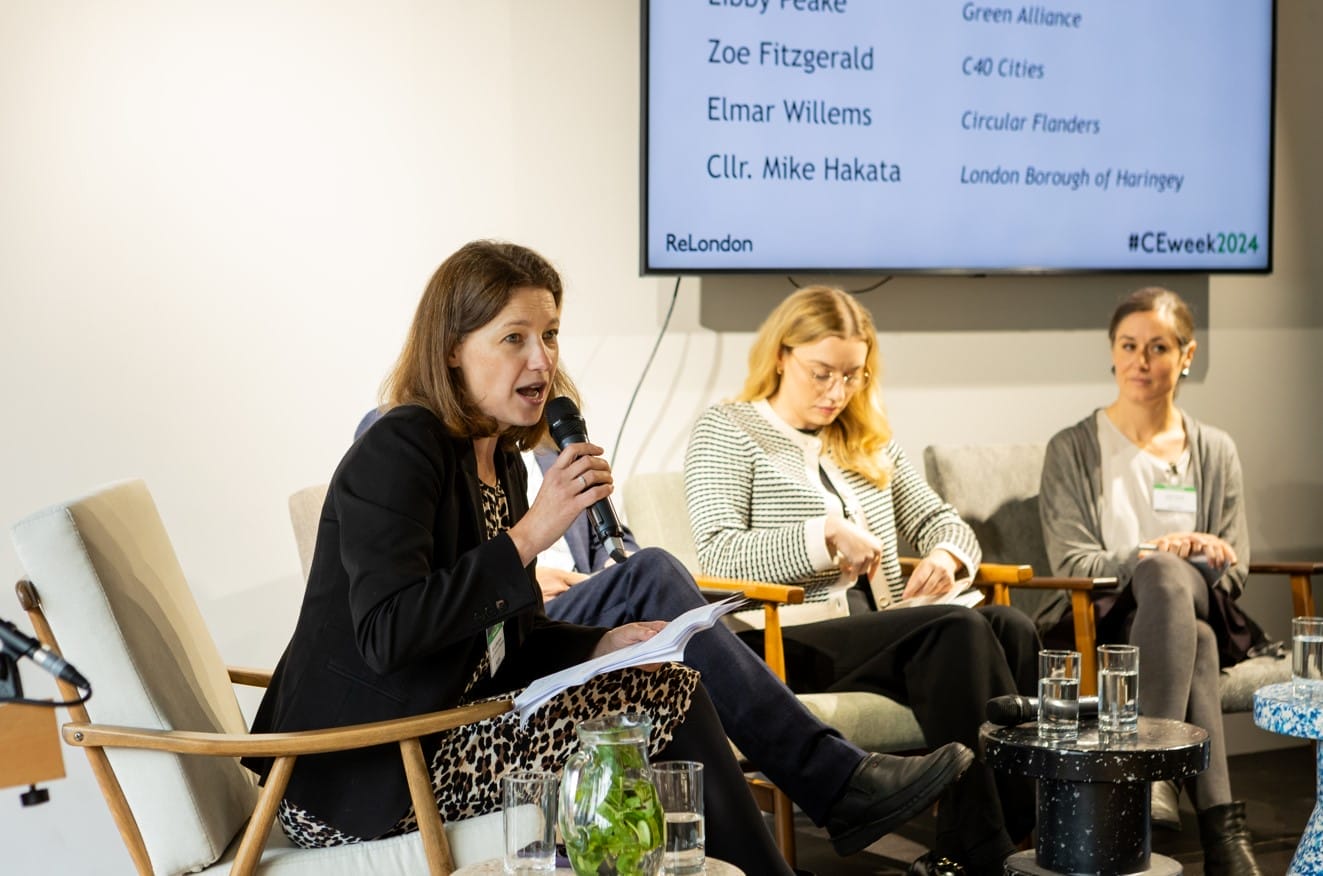
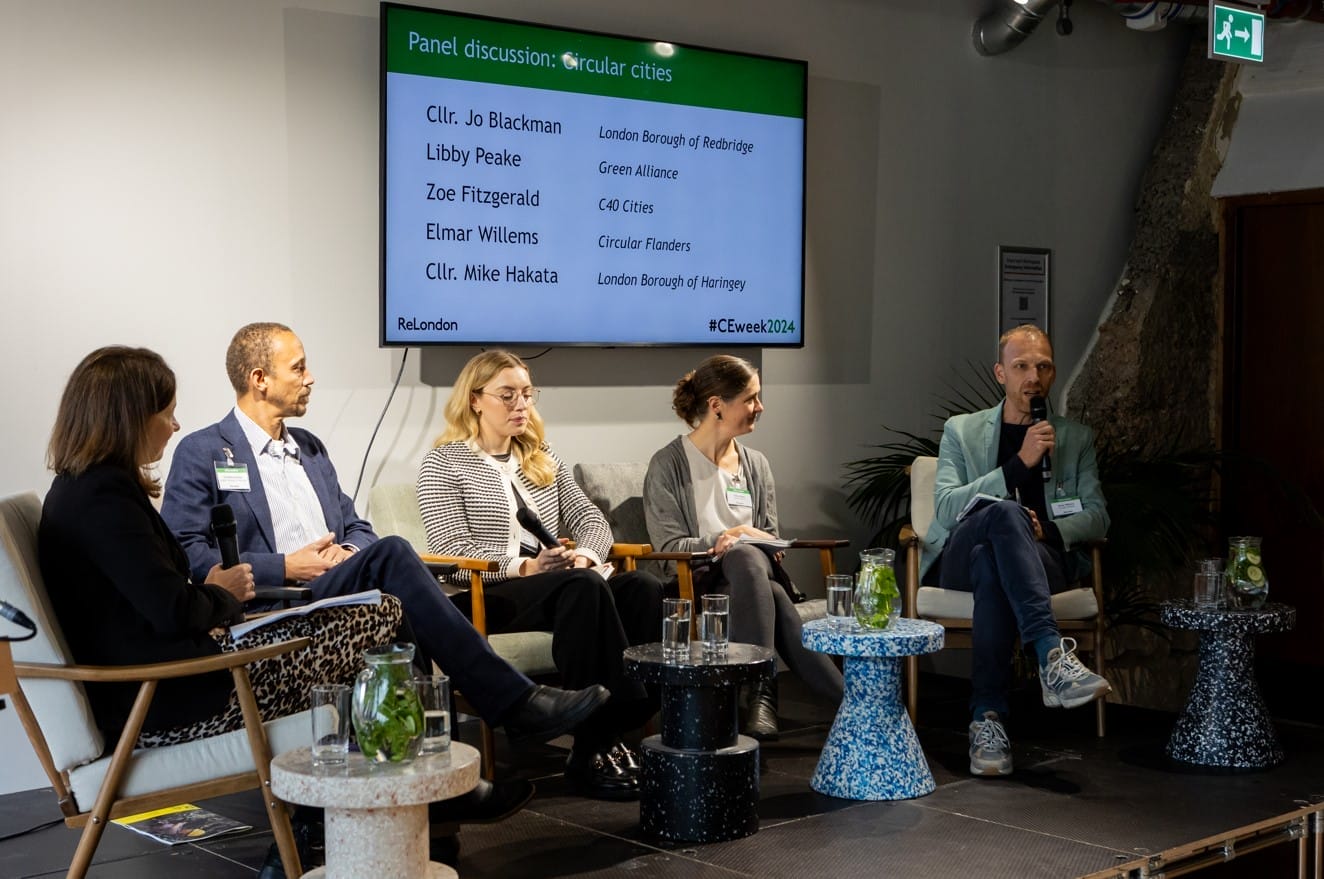
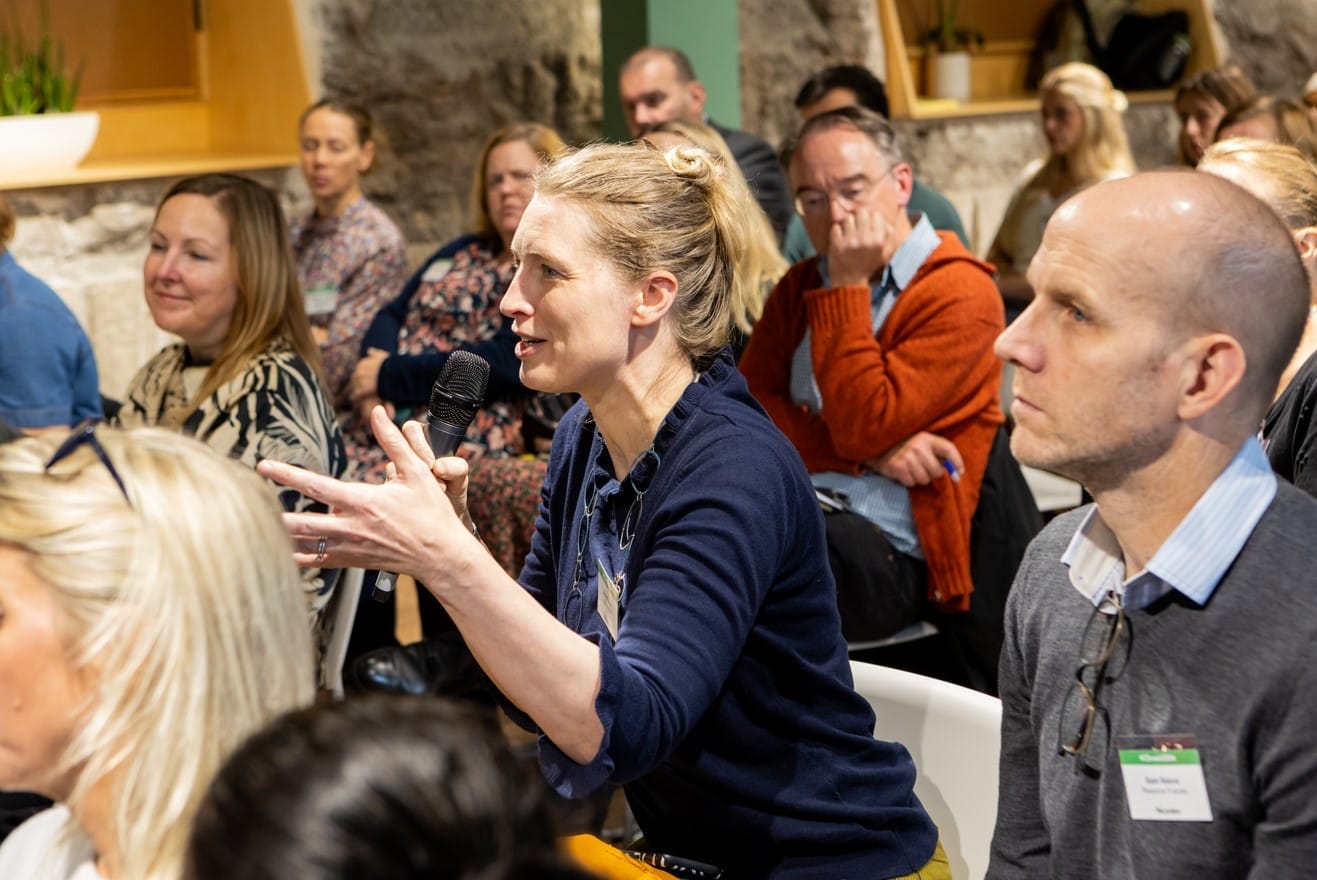
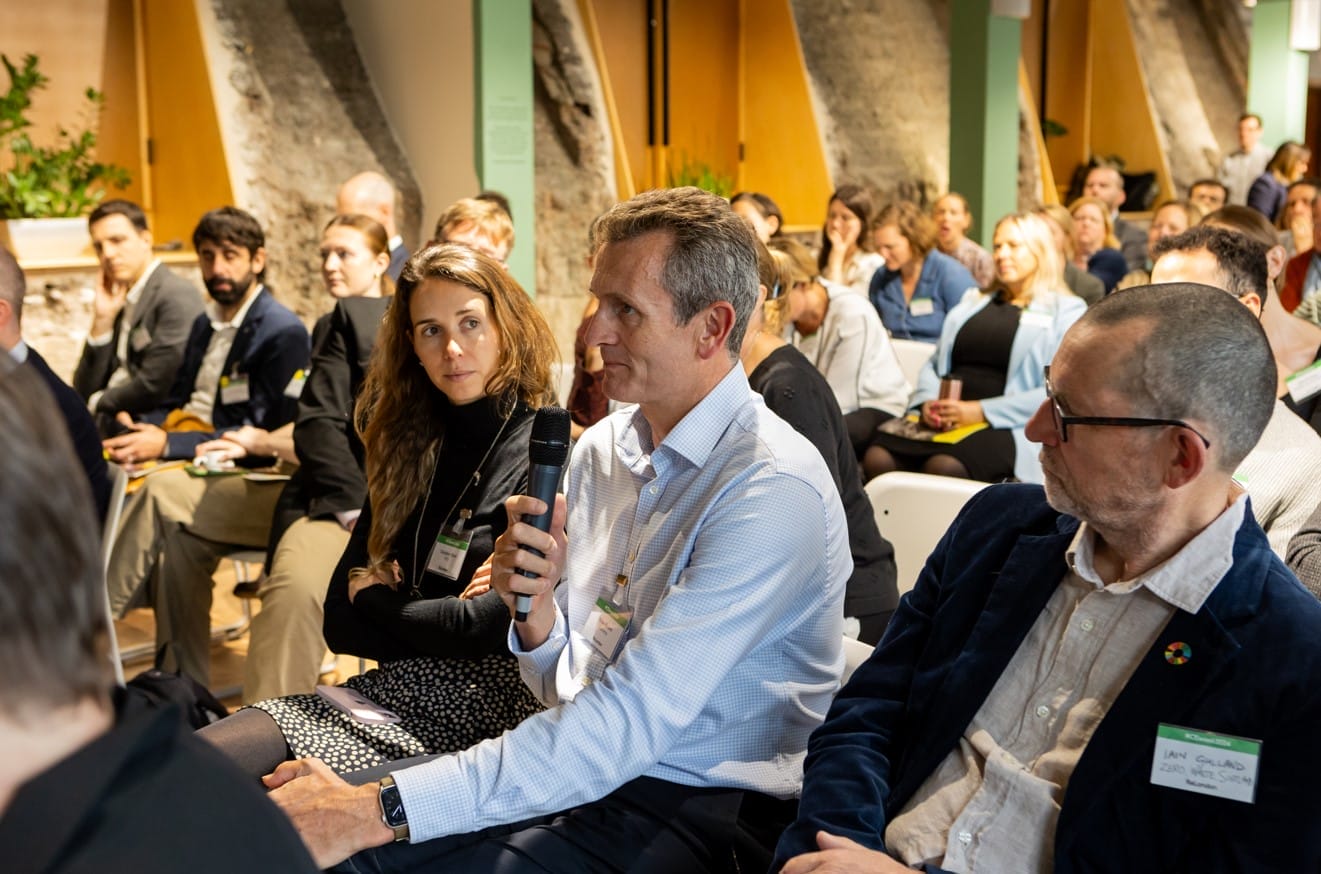

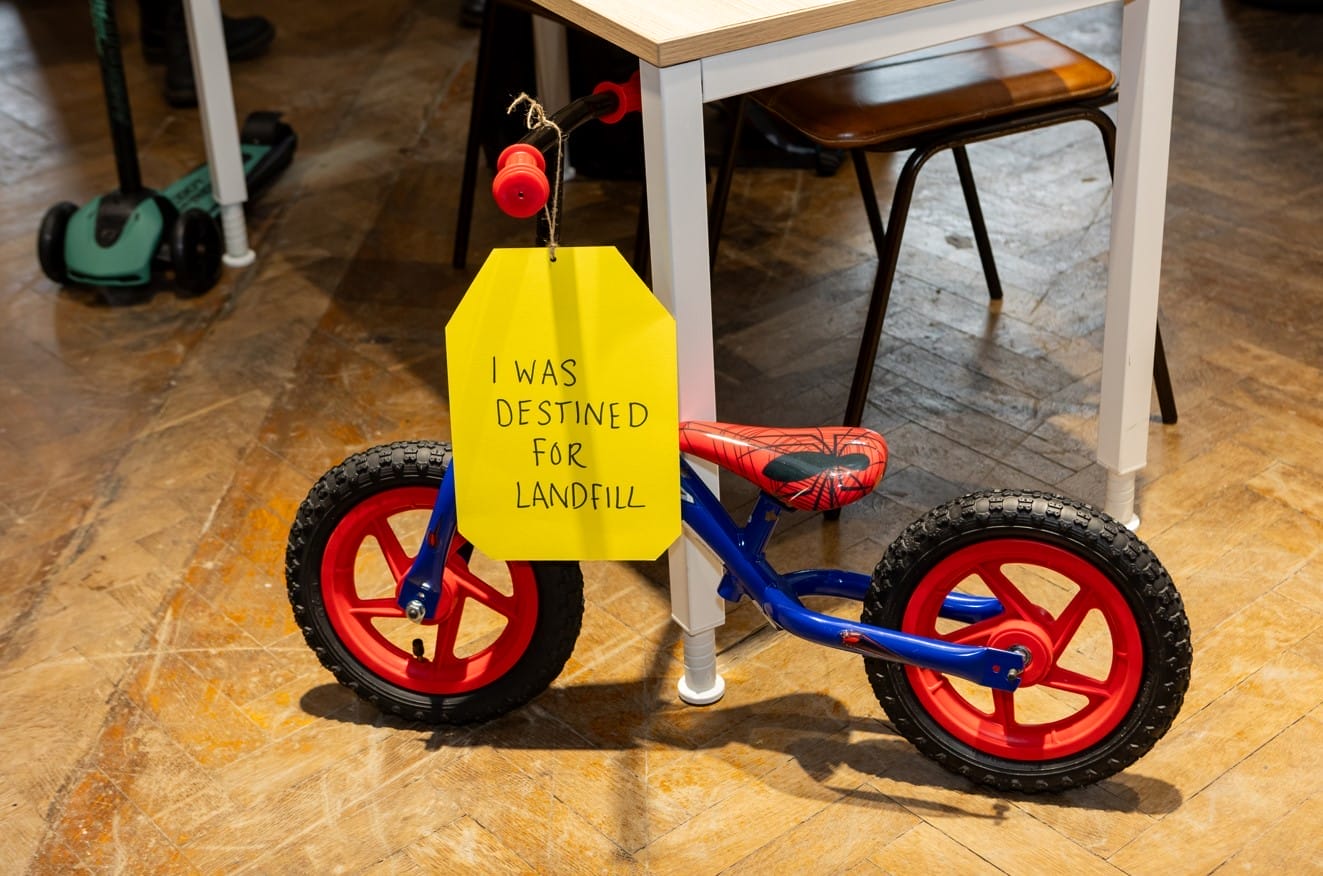
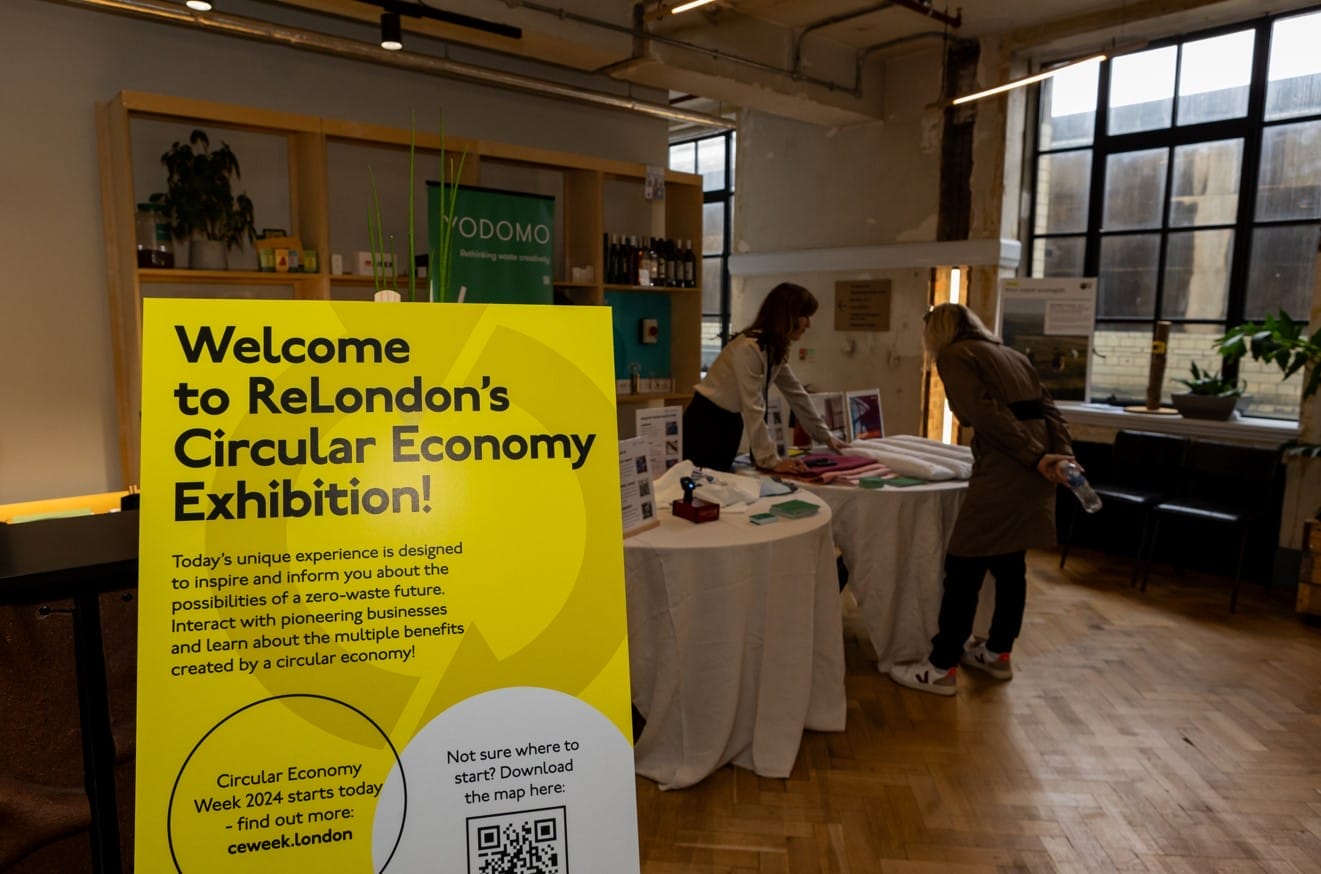

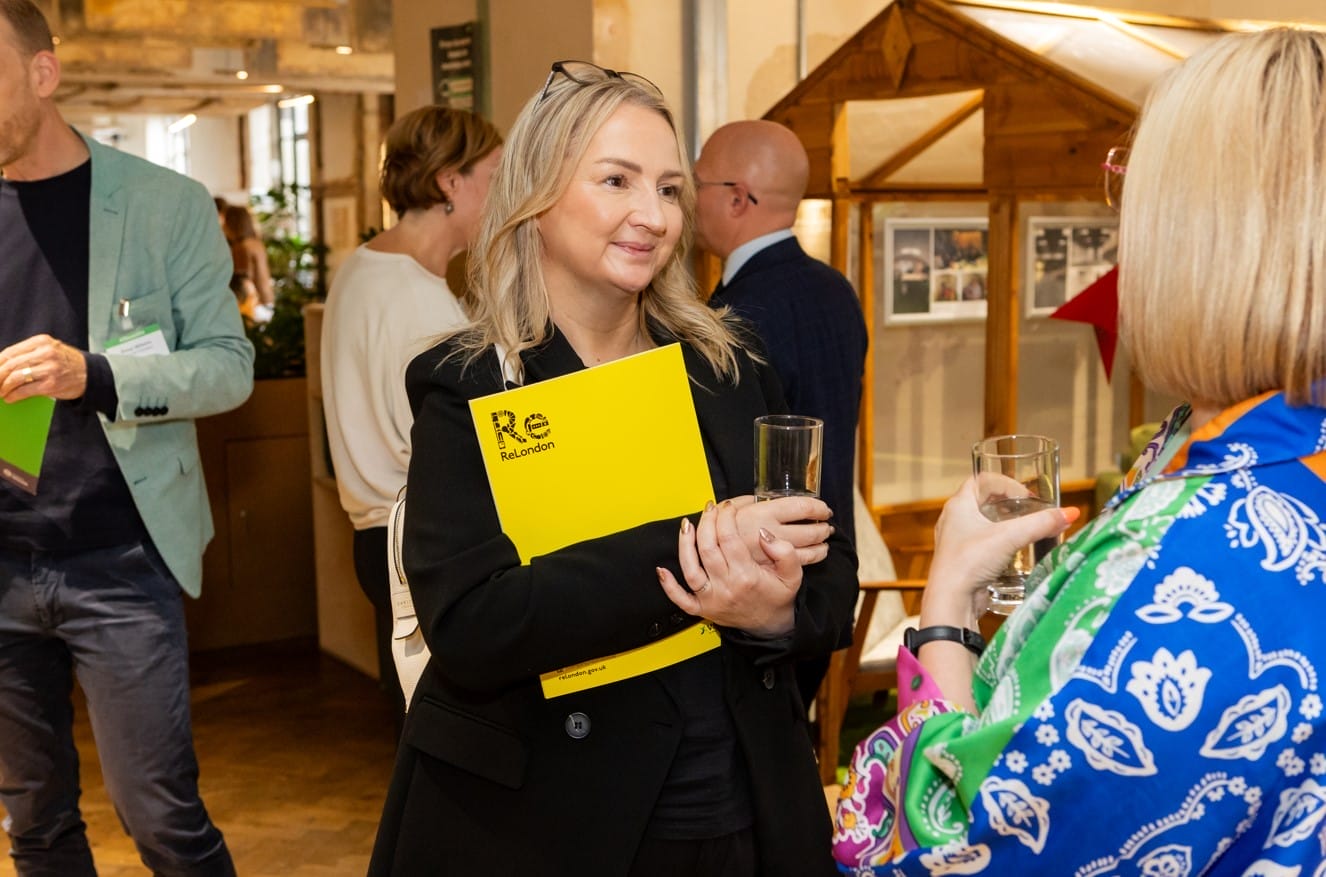
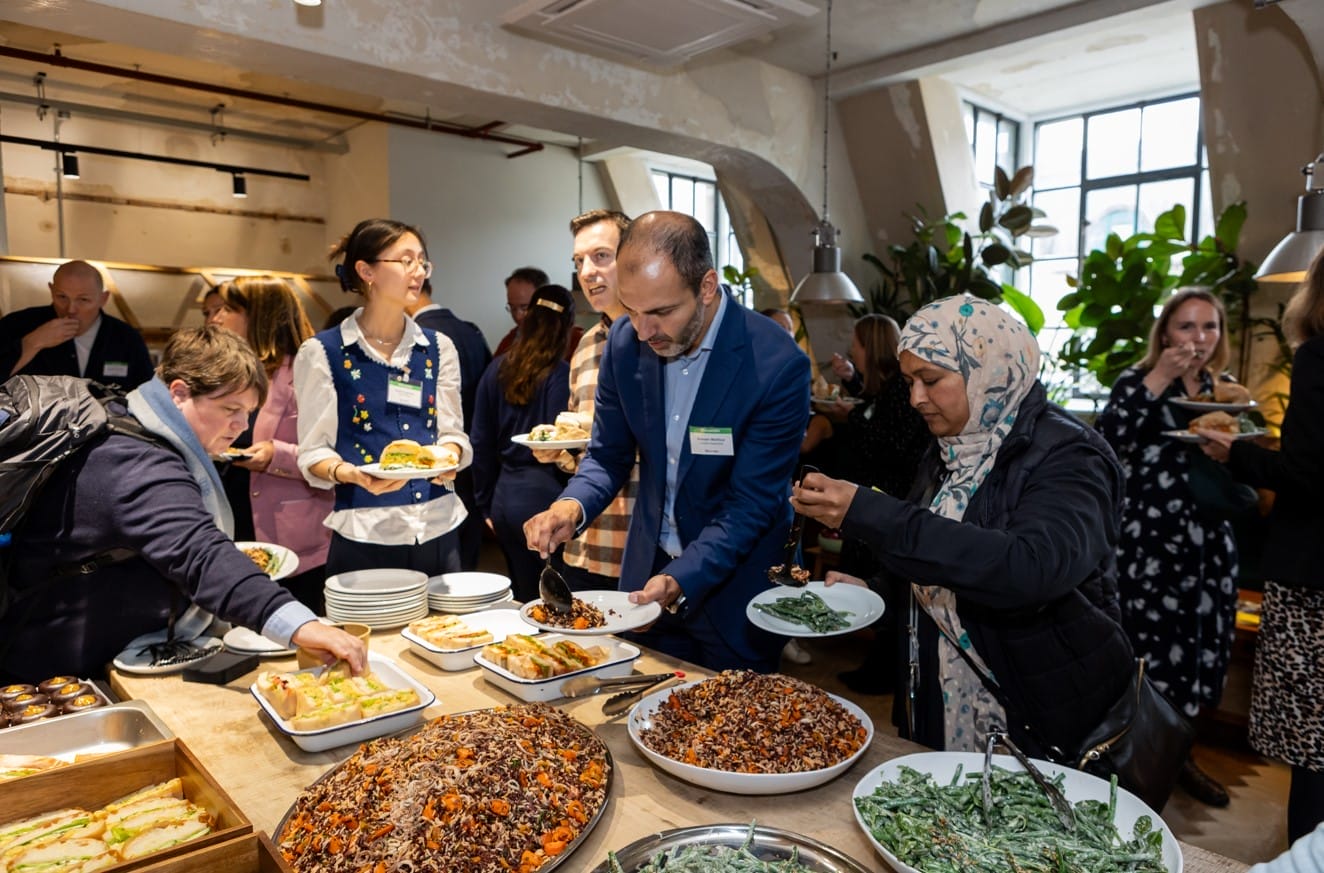
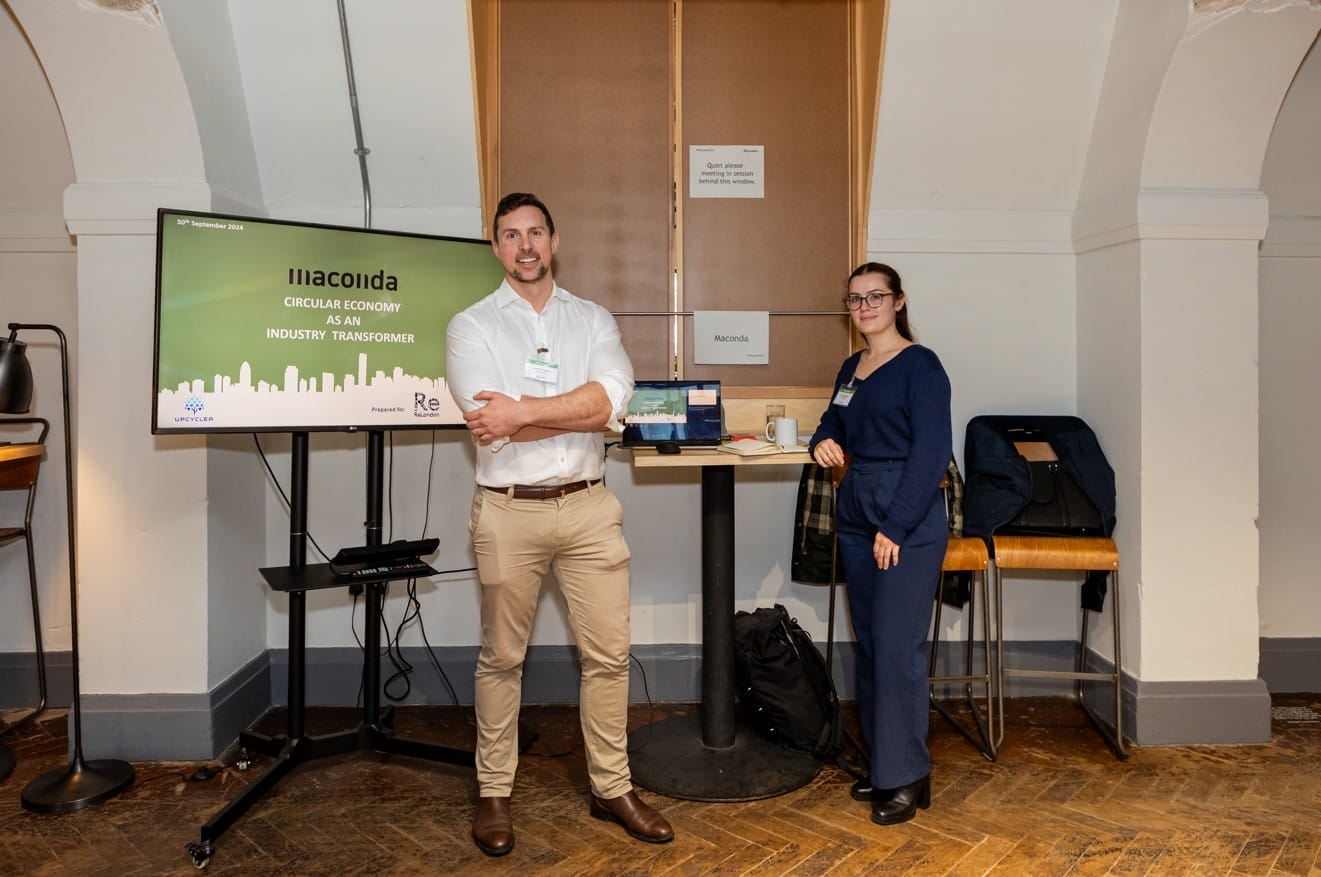
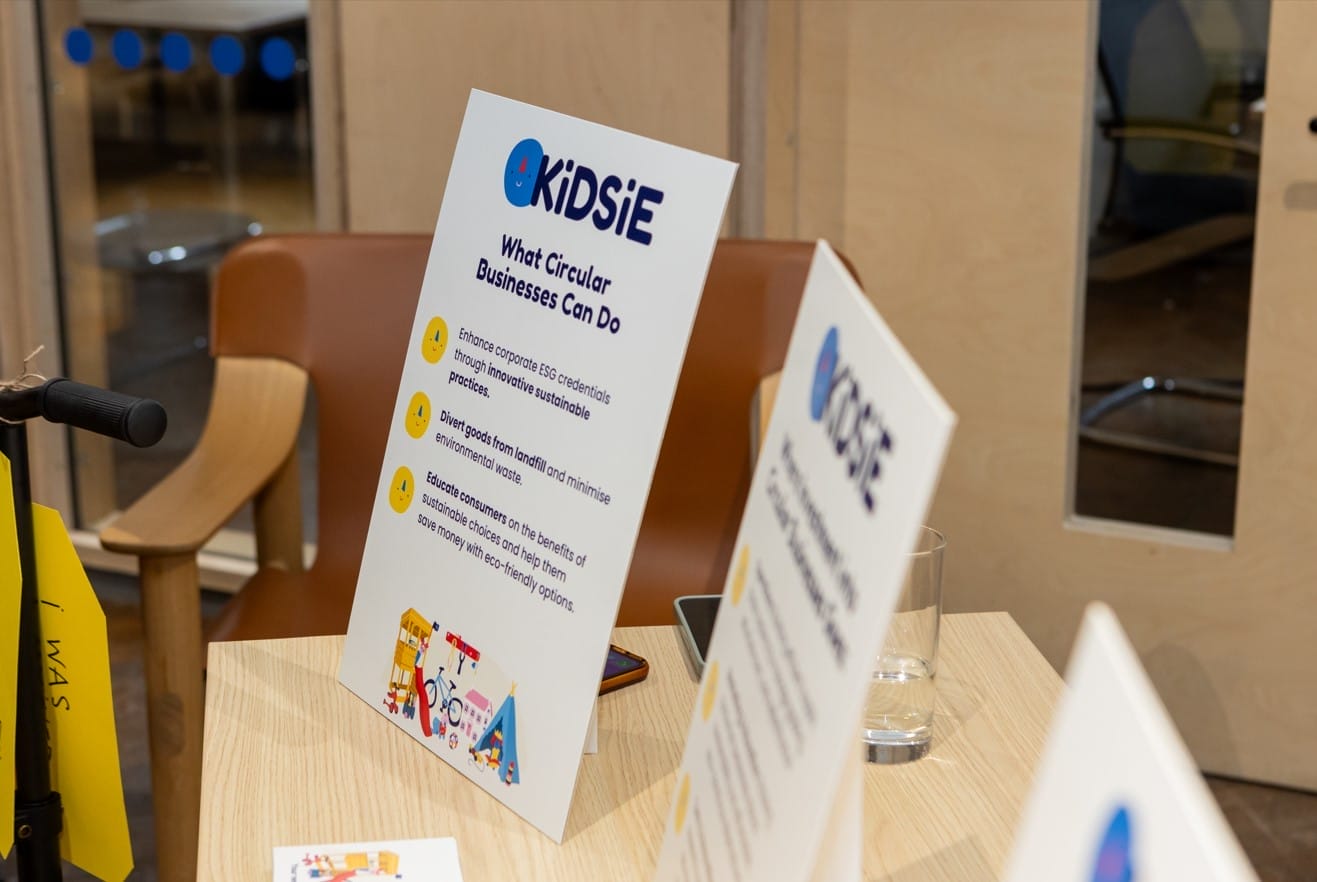
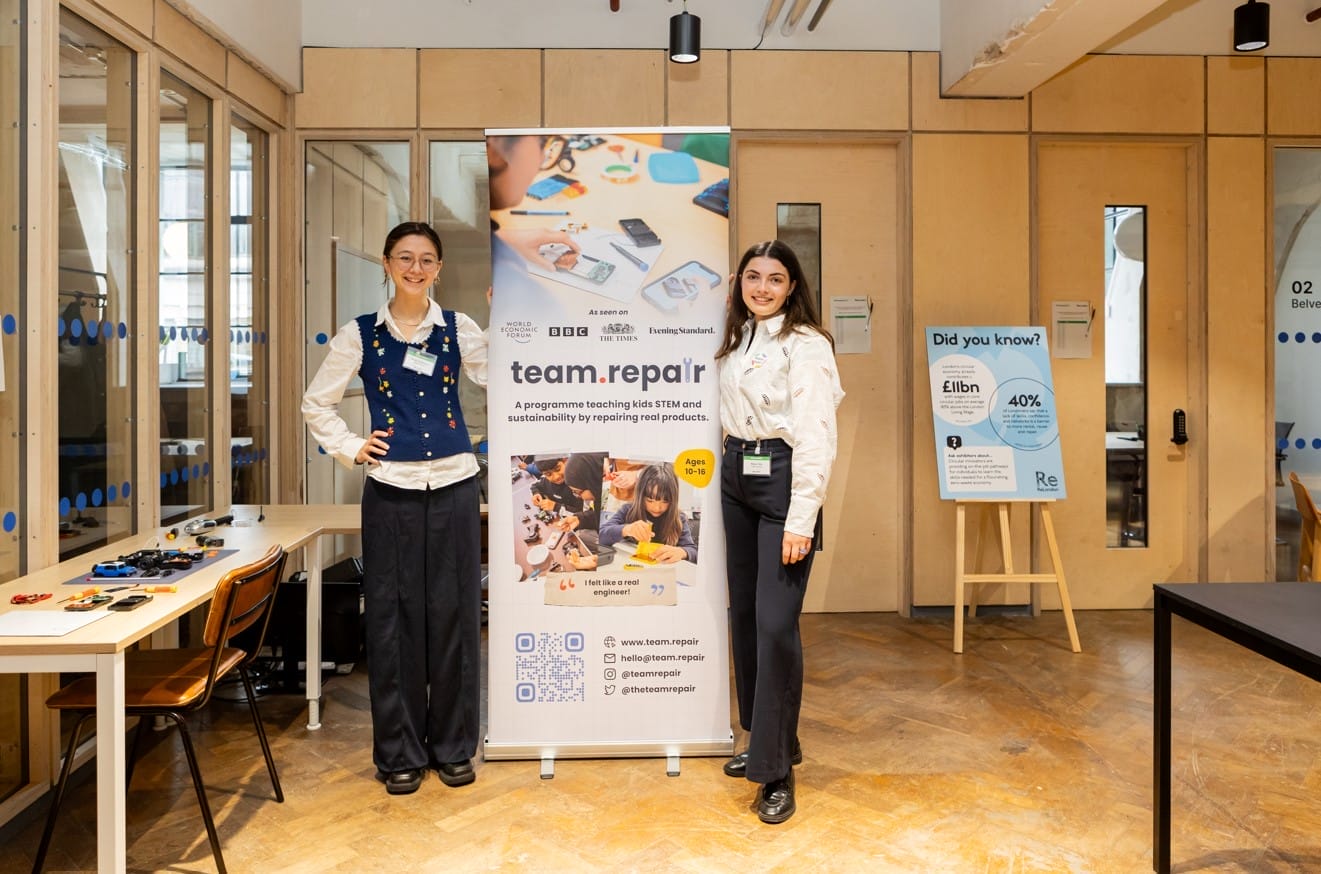
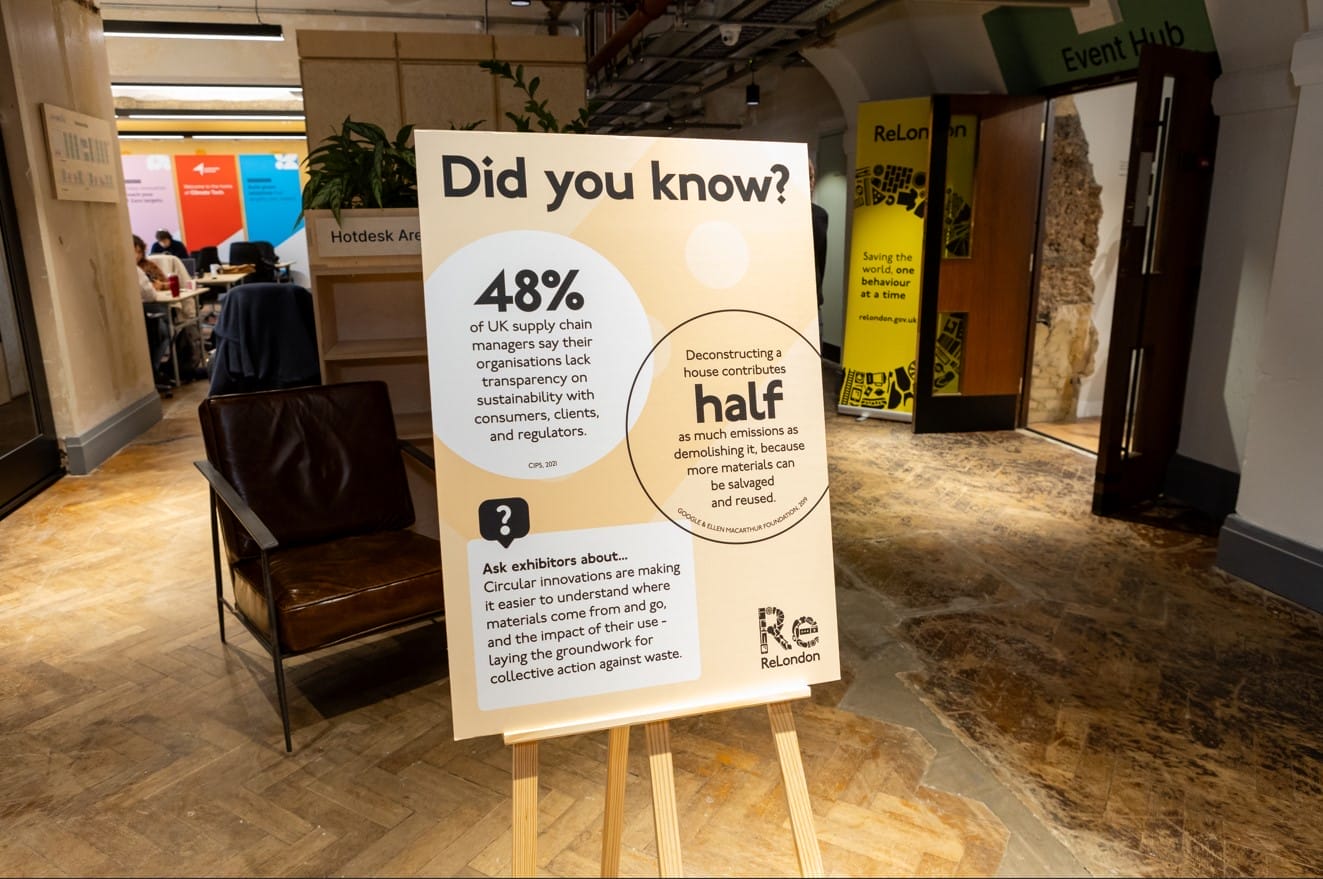
Photo credit: Maria Woodford Photography
#CEweek2024 runs from 30 September – 6 October, a week of 55+ inspiring events and activities showcasing collective progress made towards a zero waste economy in London and beyond. Explore the CE Week 2024 programme here.


